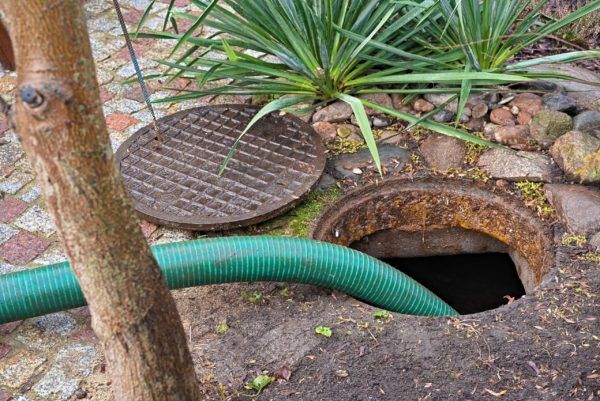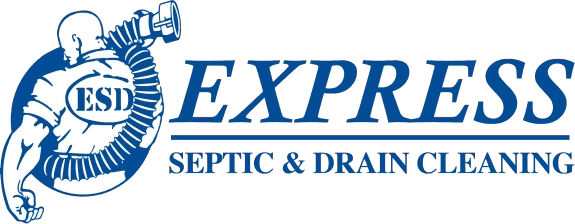One of the most important steps in protecting your Nampa, ID home is caring for your septic system. Negligence in this area could leave you with an expensive, whole-house backup and a smelly, sunken yard. Unfortunately, when outside temperatures plummet, your septic tank and its drain field are in danger of freezing over. Knowing how cold weather affects these underground wastewater systems is key to keeping them running smoothly.
The Potential for Septic Freezing and the Dangers of Using Antifreeze
When freezing winter weather rolls in, all plumbing systems throughout Nampa are in danger of frosting over. Whether your wastewater travels to the municipal sewer main or leads to a septic tank that’s buried in your yard, your exposed pipes should be properly insulated. In septic systems, the components that are most likely to freeze first during a cold weather snap are the pipes that travel from homes to outdoor tanks.
Freezing in septic systems is frequently a progressive issue. After all, the movement of water during cold weather plays a major hand in preventing icing. If the pipe to your tank is frozen and your wastewater is poised to start backing up into your home, water levels in your tank will decline and the movement of wastewater to drain fields will slow. Although drain field freezing isn’t incredibly common, it is an inevitable development if other portions of the system remain frozen for too long.
Some homeowners attempt to reverse freezing early on by adding antifreeze to their septic systems. This unfortunately common and low-cost mitigation strategy can have devastating short and long-term effects on the health of septic tanks and all other system features. Not only is antifreeze not guaranteed to prevent freezing, but it’s also capable of disrupting the ongoing and essential bacterial activity within tanks.
The Effects of Mounting Pressure From Soil, Snow, and Ice
Excessively cold temperatures aren’t the only risk factor for septic tank and drainfield freezing. Wet soil is a lot heavier than dry soil. Saturated, frozen soil is even heavier still. When drain fields are covered in compacted snow, ice, and earth, their ability to retain warmth suffers. As increasing compaction gradually reduces septic insulation, the risk of freezing rises. To minimize this risk, avoid parking any vehicles on top of your septic system. You should also keep heavy lawn equipment and landscaping features out of this area as well.
In-Tank Bacteria Struggle During Winter Weather
Antifreeze has an antimicrobial effect on the interior of septic tanks. Unfortunately, cold temperatures do too. When the outside temperature suddenly drops, it takes a while for in-tank bacteria to fully recover. To combat this issue, you can schedule septic tank services in the fall or early winter to ensure that there are plenty of active and robust microorganisms to support the ongoing water treatment process.
Another important tip for the winter months is to use your septic tank often. The anaerobic bacteria in your tank generate heat by breaking down organic materials. The more waste and wastewater you send their way, the easier it will be for these organisms to stay warm and thrive.
Fast-Dropping Temperatures and the Ravages of Expansion
Freezing wastewater and semi-solid materials expand as their temperatures drop. When this expansion happens in small, confined spaces, certain septic system components could crack or burst. Worse still, many common signs of septic tank ruptures and leaks can be difficult to identify during cold weather. For instance, you’re unlikely to spot unnaturally rapid lawn growth if your landscape is covered in snow, and saturated ground could feel hard and stable if it’s already iced over. Freezing weather can sometimes even mask the unpleasant smells of septic tank failure.
Is It Safe to Pump a Septic System in Winter?
Pumping your septic tank in winter isn’t an effective way to prevent freezing. In fact, it can have quite the opposite effect. Much like applications of antifreeze, pumping in cold weather can hinder in-tank bacterial activity and may even eliminate certain bacteria. No matter what time of year septic tank pumping is performed, bacterial activity invariably slows for about two to three weeks. Cold weather delays recovery and could leave you with low-performing bacteria throughout one of the most challenging seasons for these systems.
Buried tank lids are also often frozen closed throughout much of winter. Attempting to wrest these closures open and off could lead to structural damage. To minimize the risk of freezing and facilitate easy access, tank lids can be extended to grade and insulated. However, if you have an older tank and an uninsulated tank lid, it’s probably best to wait for warmer weather to arrive before scheduling a pumping service.
There are several exceptions for wintertime septic pumping. For example, if freezing or another issue has caused your septic tank to back up into your home, winter pumping is essential. Pumping is also advisable for cabins and other vacation properties with low septic use throughout the cold season. In low-use dwellings, removing wastewater and sludge before it freezes and expands can prevent widespread system damage.
What Happens When Septic Tanks and Drainfields Thaw?
Freezing isn’t the only problem that cold weather can cause in septic systems. If your septic tank freezes, you’ll need to be ready for the effects of a slow or quick thaw. Both slow and rapid thawing can lead to drainfield flooding if the right mitigation strategies aren’t in place. Rapid thawing makes these events downright unmanageable by saturating the surrounding soils and inhibiting wastewater’s movement. However, if your system takes too long to thaw even as septic use is increasing, your wastewater could back up into your home.
For these and other reasons, if you suspect freezing in any area of your septic system, even if your wastewater is still moving in the right direction, it’s important to schedule service right away.
Tips to Limit the Likelihood of Septic Tank and Drainfield Freezing
Protecting your septic tank and drainfield from freezing starts with protecting your plumbing system. Surprisingly, having aging and badly worn pipes throughout your home greatly increases the risk of icing. One of the best times to schedule a whole-house plumbing inspection and annual plumbing maintenance is just before winter sets in. This way, leaks, clogs, and other age or maintenance-related issues can be identified and resolved before frosty temperatures arrive.
To avoid freezing at the sewer line and throughout the system, add extra insulation at your tank, pipes, and soil treatment system by applying up to 12 inches of mulch. You can also insulate your sewer pipe or replace it with upgraded, naturally insulating materials.
Try to use your septic tank often and be sure to run plenty of warm water in the process. Running your dishwasher or washing machine on the right settings can send enough warm water into your septic system to clear up developing problems with frost or ice. If you intend to leave town during the holiday season, have a family member or friend drop by on occasion to run warm water while you’re gone.
Since 2006, we’ve been proudly serving Nampa, ID and the surrounding cities. Homeowners throughout the region can turn to us for superior septic pumping, inspection, repair, and maintenance services. We also provide advanced enzyme treatments. To schedule an appointment, get in touch with Express Septic & Drain Cleaning today!



